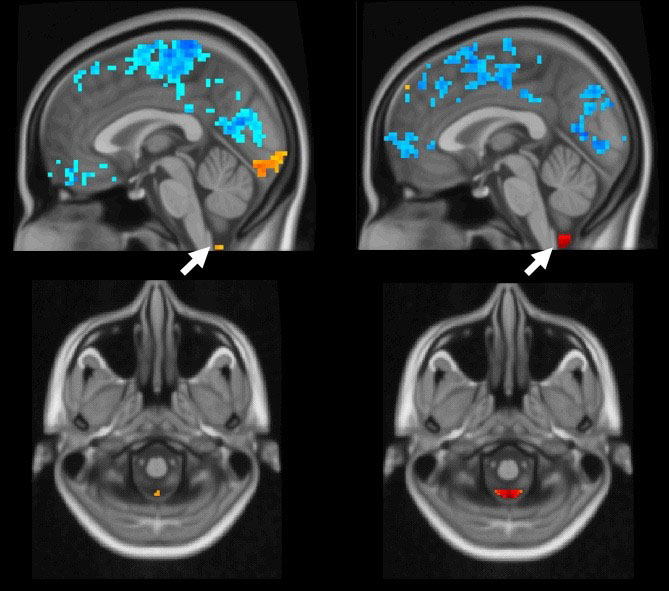Penn State to co-lead national brain health and dementia prevention initiative
Scientists at Penn State, Albert Einstein College of Medicine, the University of Southern California and other institutions have formed a new research network to detect the earliest signs of dementia years before symptoms emerge. The Open Measures Network Initiative for Alzheimer’s Disease and…
Chronic loneliness may harm cognitive health in young adults
Young and middle-aged adults who live with chronic loneliness may be at risk for early cognitive decline, according to a new study by researchers in the Penn State Department of Human Development and Family Studies.
In a study published in BMC Public Health, the researchers demonstrated that young…
Penn State social scientists support federal research funding at COSSA Day
A distinguished delegation of Penn State researchers traveled to Washington, D.C., March 24-25, to participate in the annual Consortium of Social Science Association's (COSSA) Social Science Advocacy Day. The event brought together social and behavioral scientists from across the nation to engage…
Recurring food insecurity linked to unhealthy weight changes in older adults
For every year that an adult aged 65 or older experiences food insecurity, they become more likely to undergo unhealthy weight changes associated with earlier death, according to a new study by researchers in the Penn State College of Health and Human Development.
The research team examined the…
$3.1M grant to fund study on early signs and diagnosis of Alzheimer's disease
A four-year, $3,148,346 National Institute of Aging (NIA)-funded project aims to use computational models and psychology to study the early signs of Alzheimer’s disease and other dementias (ADRD) that may appear approximately 20 years before an official diagnosis, according to Zita Oravecz,…
President Bendapudi visits SSRI
Recently, Penn State President Dr. Neeli Bendapudi visited SSRI to learn about our institute and the important research being conducted in the social sciences at Penn State. After a welcome from SSRI Director Deborah Ehrenthal, President Bendapudi heard highlights from SSRI core research resources…
Calorie restriction study reveals complexities in how diet impacts aging
Penn State researchers may have uncovered another layer of complexity in the mystery of how diet impacts aging. A new study led by researchers in the Penn State College of Health and Human Development examined how a person’s telomeres — sections of genetic bases that function like…
David Almeida to receive Gerontological Society of America Kleemeier Award
David Almeida, professor of human development and family studies at Penn State, has been selected as the 2023 recipient of the Robert W. Kleemeier Award, awarded by the Gerontological Society of America (GSA), the nation’s largest interdisciplinary organization devoted to the field of aging.
The…
$3.6M to fund study on long-term physical activity to reduce Alzheimer’s risk
Penn State College of Medicine researchers are exploring a new way to keep people physically active long term, and in doing so, they said they hope to prevent the development of Alzheimer’s disease and other neurodegenerative diseases. With a $3.6 million, two‑phase grant from the National…
Almeida Earns GSA’s 2023 Robert W. Kleemeier Award
The Gerontological Society of America (GSA) — the nation’s largest interdisciplinary organization devoted to the field of aging — has chosen David Almeida, professor of human development and family studies at Penn State, as the 2023 recipient of the Robert W. Kleemeier Award.
This distinguished…
Low sexual satisfaction linked to memory decline later in life, study finds
Low sexual satisfaction in middle age may serve as an early warning sign for future cognitive decline, according to a new study led by Penn State researchers. The study, which tracked associations between erectile function, sexual satisfaction and cognition in hundreds of men aged 56 through 68,…
Sociology professor awarded $1.8 million NIH grant for education-dementia study
Education plays a key role in preventing Alzheimer’s disease and other dementias, and Liying Luo, assistant professor of sociology and demography and associate director of the Center for Social Data Analytics, has made it one of the primary focuses of her research. Now her work in that area is…
Advance care planning project co-led by College of Medicine expands scope
The Project Talk Trial, a national study of two advance care planning interventions in underserved communities, will soon expand its reach to include individuals with mild cognitive impairment and those at risk for Alzheimer’s disease and its related dementias. Hospice Foundation of America (HFA)…
New funding will continue research to address Alzheimer’s disease and dementia
Researchers on the Einstein Aging Study work to better understand cognitive aging, Alzheimer’s disease, and related dementias. A new $32 million grant from the National Institute on Aging will allow an interdisciplinary team of researchers from Penn State, the Albert Einstein College of Medicine,…
Penn State establishes the Geroscience and Dementia Prevention Consortium
There is growing evidence that cognitive decline and dementia can be slowed. According to a recent report commissioned by the Lancet, an estimated 40% of dementia cases could be prevented or delayed by targeting modifiable behavioral, physical health, and psychosocial risk factors. There are also…
Coupled brain activity, cerebrospinal fluid flow could indicate Alzheimer's risk
Penn State researchers may have discovered a potential marker to clinically evaluate patients’ risk for Alzheimer’s disease through non-invasive imaging tests, according to a study published today (June 1) in PLOS Biology. The finding may have implications for diagnosis and treatment of the disease…















